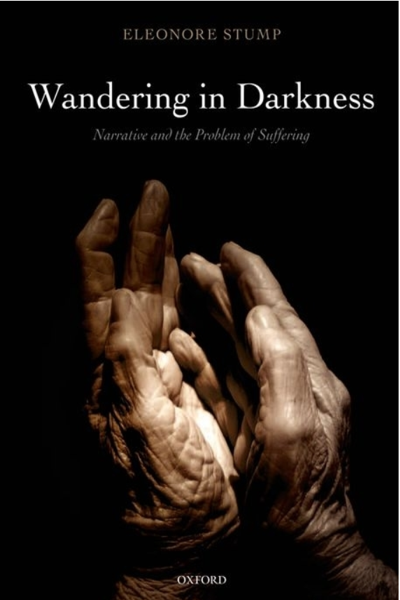Editorial Reviews
"Eleanore Stump has written a magnificent book. ... It gives us a deeply insightful account of the nature of love, as desire for the good of the beloved and for union with the beloved"
-- Expository Times
"This is an excellent book. Baehr proposes an interesting and original account of the proper goals of a virtue theory for epistemology and makes substantive progress toward developing a theory of his own. The quality of argument is very high and Baehr's writing is elegant and clear."
Notre Dame Philosophical Reviews
"Eleonore Stumps major new book on the problem of suffering is perhaps the most important contribution to the field in decades. . . . reading this book is a thought- provoking spiritual journey which raises all kinds of fresh yet down-to-earth and urgent questions. Ultimately, it may have the potential to transform how we think about and do theology for, once joint attention takes precedence over correct belief and virtuous conduct, then our lives become more complex yet richer."
-- Religion
"[A] true breakthrough... which is in a manner her magnum opus... A truly magnificent achievement, the book is rich with compelling narratives from inside and outside the Judeo-Christian Scriptures."
-- Analysis
"Noted Aquinas scholar Stump weaves together theology, philosophy, and biblical studies in a comprehensive exploration of suffering and redemption... . her rigorous, careful argumentation and outstanding use of Scripture in the service of analytic philosophy make this an important book for studies of theology and philosophy of religion. It is a necessary addition to collections in theology and philosophy. Highly recommended."
-- Choice
" Wandering in Darkness is Eleonore Stump's magisterial treatment of the problem of evil... It is bold, meticulously argued, and highly nuanced. In terms of scope and power, Stump's book clearly ranks among the best book length treatments of the problem of evil... Stump has produced a book that deserves the careful attention of any philosophically able reader interested in the problem of suffering in light of the belief in an omnipotent, omniscient, omnipresent, essentially good God."
-- European Journal for the Philosophy of Religion
"Eleonore Stump's major new book on the problem of suffering is perhaps the most important contribution to the field in decades... reading this book is a thought-provoking spiritual journey which raises all kinds of fresh yet down-to-earth and urgent questions. Ultimately, it may have the potential to transform how we think about and do theology"
-- Theology
"Stump's book is original, insightful, and brilliant. This magnum opus is the product of measured thought and mature experience. In it, Stump mounts a strong, lucid defense of a traditional Christian (specifically Thomistic) understanding of the problem of suffering (limited in her investigation to the suffering of fully functional adult persons). To do this, she uses both analytic philosophy and narratives... The philosophy is excellent... those who share the Thomistic worldview will also find Stump's reflections to be deeply moving reminders of the excellence and wonder of God's love."
-- Religious Studies Review
"immensely ambitious... her interpretation of the four biblical narratives is... stunningly successful, repeatedly finding new levels of meaning."
Times Literary Supplement
"Eleonore Stump's Wandering in Darkness poses a learned, astutely crafted argument for the compatability of human suffering and God's existence, and in doing so it provides a number of innovations that will be of real interest to analytic philosophers of religion in particular and more generally to anyone curious about the so-called 'problem of evil'"
-- Journal of Religious Studies
"It takes a lifetime, as well as a remarkable life, to write a book like Wandering in Darkness. Eleonore Stump asks: Is it possible in the face of suffering to believe in a God who is omnipotent and perfectly morally good? She relentlessly explores this inquiry not only by helping us to see that the question itself must be questioned, but by applying to the query her extraordinary erudition, a gift for philosophical and analytical clarity, and what must be hard-won and profound theological judgements."
-- Christian Century
"[A] must-read for philosophers of religion and a very beneficial read for other philosophers and for other scholars of religion. It is without question a highly nuanced and philosophically deep book. I have benefited both personally and philosophically from reflecting on what Stump says in the book about love, and Stump's insights on Franciscan knowledge of persons have led me to a deeper appreciation of the prospects for a religiously rich form of "skeptical faith," one that allows, paradoxically, for knowing God even if one lacks the knowledge or even the belief that God exists. More generally, the potential for applying some of the central ideas in the book to other problems in philosophy is enormous."
-- Notre Dame Philosophical Reviews

